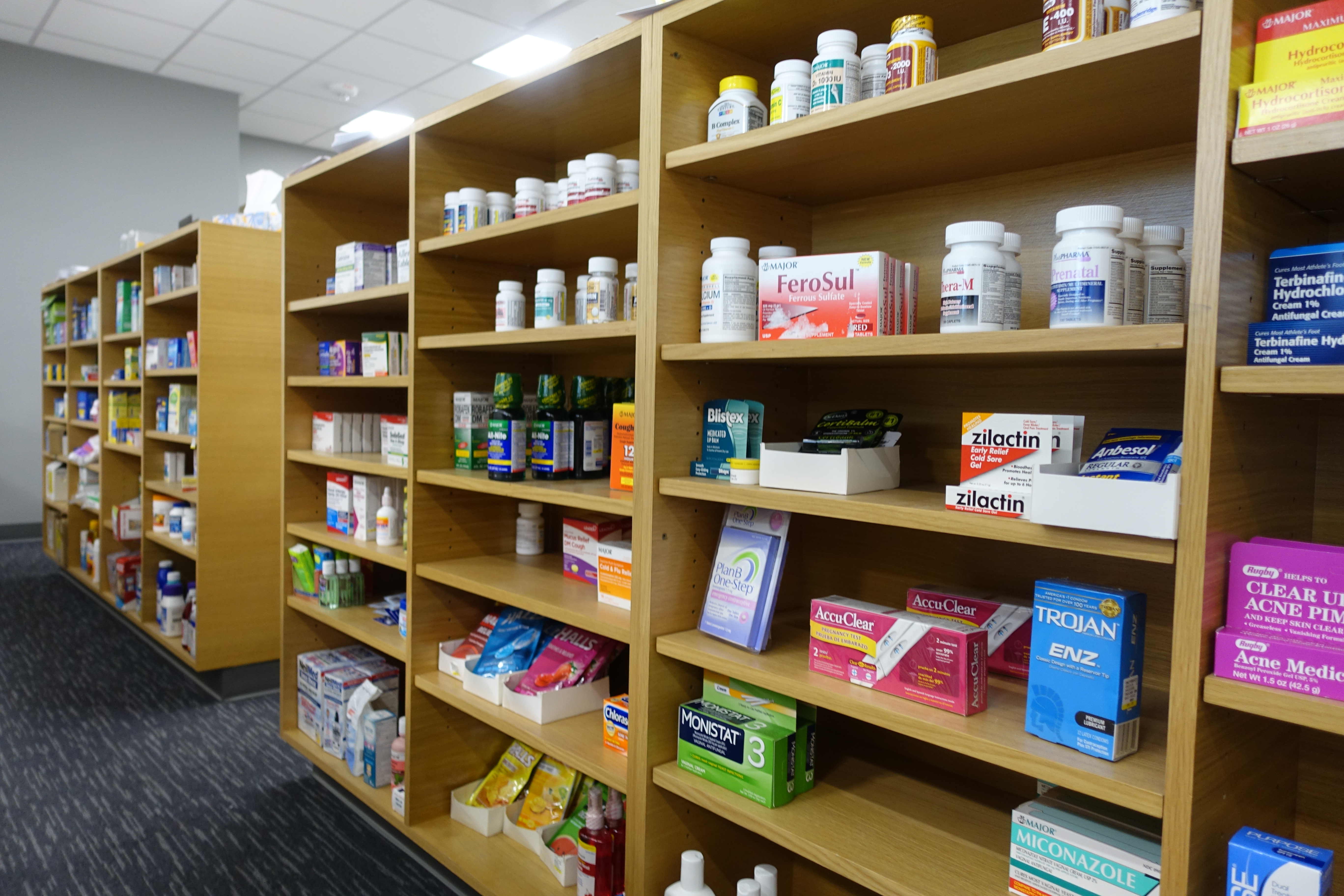
Never underestimate the power of a well-stocked medicine cabinet. Whether you have the sniffles or something more serious, being able to treat your symptoms at home with self-care measures can alleviate your discomfort and help you start feeling better faster.
As spring draws near, set aside time to take stock of your supplies and dispose of any expired medications. If you’re running low on anything, swing by the University Health Center Pharmacy to get what you need at a discounted rate. They have pharmacists on site who can make product recommendations and help you select the right medication for your needs. They can also help you safely dispose of unused, unwanted or expired medicines.
Here is a list of basic over-the-counter items you should have on hand to help treat common symptoms:
Aches and Pains
- Acetaminophen: Headaches, fever, cold or sore throat, general pain
- Ibuprofen or naproxen: Inflammation, fever, muscle aches, general pain, menstrual cramps, toothaches
Naproxen and ibuprofen are different medicines, but both work very similarly to treat the same types of concerns. Sometimes, one affects your body differently than the other – perhaps one irritates your stomach, whereas the other does not. This can vary from person to person, so choose whichever medicine works best for you.
Upset stomach and/or indigestion
- Antacid (such as TUMS): Heartburn
- Polyethylene glycol (such as MiraLAX): Constipation
- Loperamide (such as Imodium): Diarrhea
- Bismuth subsalicylate (such as Pepto Bismol): Nausea, diarrhea, heartburn, indigestion, upset stomach
Indulging in that pizza last night probably sounded good at the time, but now it’s wreaking havoc on your body. Depending on the type of discomfort you have, try one of the medicines above to help you calm your stomach.
Cold and flu
- Thermometer: To take your temperature when you don’t feel well
- Pseudoephedrine (such as Sudafed): Head congestion and sinus pain
- Dextromethorphan (such as Delsym): Cough
- Guaifenesin (such as Mucinex): Chest congestion
- Nasal saline: Dry sinuses
Allergies
- Diphenhydramine (such as Benadryl): Pain and itching caused by insect bites, minor cuts, burns and poison ivy/oak/sumac; sneezing and hay fever caused by allergies; hives
- Loratadine (such as Claritin): Sneezing and other common allergy symptoms
- Nasal saline: Dry sinuses
- Fluticasone propionate nasal spray (such as Flonase): Stuffy or runny nose, itching and sneezing
Sexually transmitted infections and pregnancy
- Condoms: The only form of birth control that prevents STIs
- Emergency contraception: A pill that can stop a pregnancy before it starts
- Pregnancy test: At-home urine tests that can tell you if you’re pregnant or not
If you are sexually active, have condoms on hand at all times. You never know when you’ll need one. If your birth control method fails, such as when a condom breaks, taking emergency contraception may give you peace of mind and help prevent unwanted pregnancy.
Bonus tip: If you take birth control, save time by filling your birth control prescription on campus at the health center Pharmacy. Free mail-order delivery may be available.
Wound care
- Adhesive bandages (such as Band-Aids): A variety of shapes and sizes
- Topical ointments (such as Polysporin or Bacitracin): To prevent bacterial infection in minor cuts, scrapes or burns
- Gauze
- Adhesive Tape
Acne
- Benzoyl peroxide
- Adapalene
- Gentle skin-care cleanser (such as Cetaphil)
Remember, the University Health Center Pharmacy is here for you. If you need medicine or have questions about what over-the-counter items to take to help you feel better, call us at 402.472.7457.